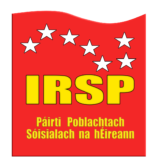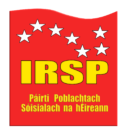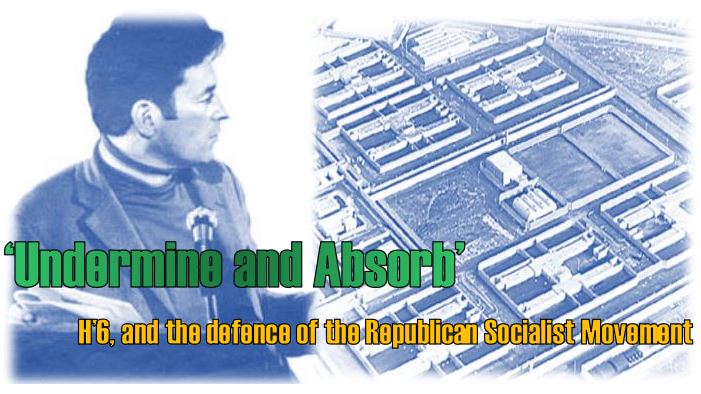
This month marks the 25th Anniversary of the establishment of H’6 the Republican Socialist wing of the H-Blocks of Long Kesh, home to prisoners and POWs of the Irish Republican Socialist Movement.
While IRSM prisoners played a full part in all periods of the Long Kesh struggle, including the blanket protest and tragic Hunger Strikes of 1981, the establishment of a separate prison wing was testament to the tragic and shameful fact that they were (behind the scenes) being subjected to protracted and brutal attempts to undermine their structures, as part of a larger project which aimed to hijack the resources, manpower and identity of the Irish Republican Socialist Movement itself.
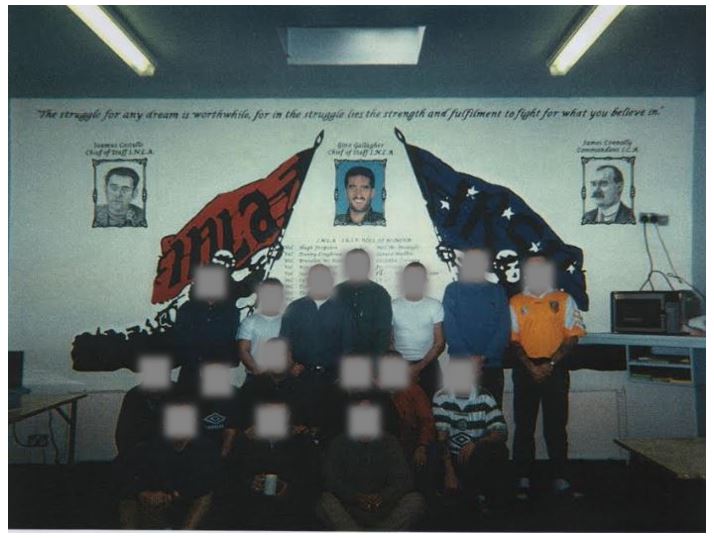
While a raft of organisations (past and present) have attempted to adopt and utilise both the identity and legacy of Seamus Costello’s Irish Republican Socialist Movement, the Provisional’s “Undermine and absorb” period refers to a specific and prolonged policy of treating INLA POW’s within Long Kesh and various cages and blocks within as inferior, often attempting to bestow upon them ‘civilian’ or even ‘criminal’ status, as a means to break men’s morale and ultimately take control of or smash the organisation’s structural integrity.
“Undermine & Absorb” was a policy of treating INLA POW’s as criminals and furthermore refusing to recognise them as POW’s, with the targeted result of removing all privileges and black listing what were decent activists of the IRSM. Throughout this period, activists, fighters and POWs were isolated, intimidated, placed ‘under arrest’ and even attacked by PIRA POW’s.
It was ultimately an attempt by the PIRA leadership to absorb the INLA POW’s into their structures.
Ten years ago, 2 former INLA POW’s provided a detailed and personal account of their experiences during the “Undermine and Absorb campaign” a shameful era in Irish prison History, but one which stands testimony to the unquestionable and enduring resistance of the IRSM generally.
The two accounts below are taken from the now defunct ‘RSM discussion board’; the IRSP are currently in the process of accessing the complete litany of prisoner testimonies to present a fuller picture of that period.
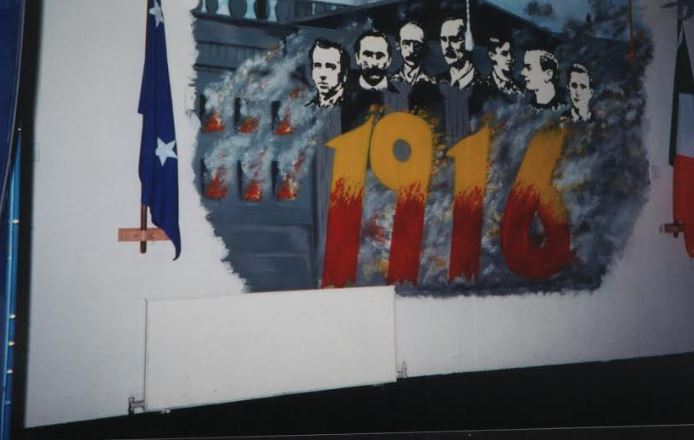
Willie Gallagher
Strabane
Cages/Blocks 1975-1993
POW REP 1996-2004
Before I give my personal recollections of that period, I think it’s worth pointing out that because of the criticism that will be directed against the PRM, this is not a PSF bashing exercise. That is why I would like to acknowledge the dedication, commitment and steadfastness of the PRM in the H- Blocks throughout the 1980s and early 90s in the pursuit of the restoration of full political status, and the resistance that was put up in that particular struggle.
Anyone who followed the ‘Billy Wright Inquiry’ will see clearly that within time of that Inquiry’s remit, (1996-98) Republican Socialist prisoners had total and full control within their Block and that full political status was restored and recognised by the system.
PIRA prisoners, because of their numbers, as well as their dedication and commitment, were the main driving force in this achievement. Of course, INLA prisoners also contributed to this achievement, yet, as we all know INLA prisoners, due to the ‘undermine and absorb’ campaign they were compelled to establish their own independent Block by 1994.
It must also be acknowledged that many PIRA prisoners refused to take part in the appalling and counter revolutionary campaign of ‘Undermine and Absorb’, indeed many spoke out against it and as a result, some were even court-martialled (by PIRA) for doing so. Some were marginalised and ridiculed for going against the ‘party line’ and it would be wrong for us not to recognise and acknowledge their courage and sense of justice during that period.
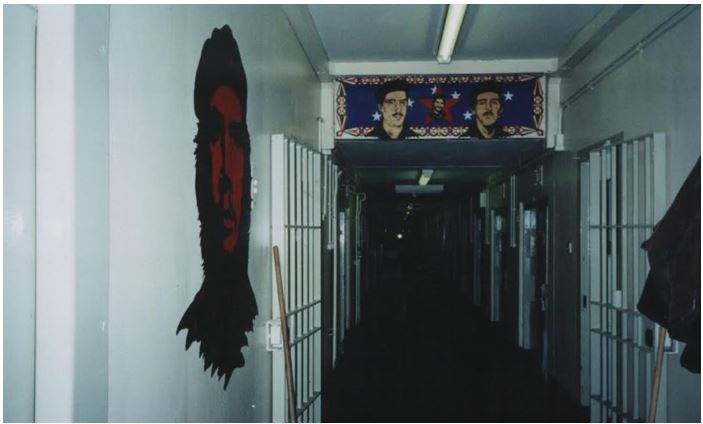
Our accounts of this period should also include testimonies of our families on the outside who, shamefully, were also targets of this campaign. One small personal example (which is documented in the ‘Out of The Shadows’ pamphlet) occurred in the mid to late 1980s, when I had two other brothers in the Blocks at the same time, all of us doing 20 years each.
One of my brothers was a PIRA volunteer, yet my mother, (travelling the 160 mile + round journey from Strabane to Long Kesh) was only allowed to travel on the PDF (prisoner dependent) bus to visit her PIRA son but not allowed on to visit her two INLA sons. They even checked her visiting pass before allowing her on the bus. For a period of approximately a year she thumbed up the road to the kesh and on occasions the PDF bus passed her, sometimes it was only half full.
The above story is one all irp prisoners will identify with particularly those who were in prison during the mid 80s to mid-90s. I too was one of the prisoners who walked off the wings the same time as Micky in August 1988 along with other irp prisoners such as big Gino in an attempt to secure an INLA wing. It was the best wing I was ever in, where there was genuine comradeship, equality, respect and solidarity. The PIRA leadership had dubbed us the ‘contras’ and by extension of that label they viewed themselves as the ‘Sandinistas’. Unfortunately, we failed to secure a separate wing/block until 1994, ten years too late for many.
Micky O’neil
Newry
H-blocks 86 -90
I entered the H-Blocks as a 19-year-old Irp prisoner in 1986 and for the first time experienced the full shock of being looked upon as a “common criminal”, a “tout” etc, not by the screws but by PIRA prisoners themselves.
I took part in every protest that was organised by POWs, who were still trying to undermine the prison regime itself, in regard to dinnertime, eating arrangements, lockups, etc. It saddened me greatly that fellow prisoners could behave in such a way to myself (a young kid) and the many other irp prisoners who had sacrificed their young lives to engage the brits on our streets.
I found it ironic that I was on the streets of my town fighting at every opportunity, for the prisoners on the “dirty protests” and on hunger strike, highlighting their plight, only to find myself being a victim of a policy that was not different to Thatcher’s, and by the very men I looked up to.
I had no choice but to leave with my comrades, we took no joy from what we had to do, how would you react to being alone on a wing with 23 men who would not talk to you? except when absolutely necessary? I was totally ostracised for being an irp or [as the Provisionals would have preferred] a civilian, and my only contact with friendly prisoners was on a Sunday when I got the chance to meet with other Irp prisoners from the opposite wing.
To walk the yard in the H Blocks daily and have no one speak to, was a very lonely experience for a 19-year-old lad. But instead of breaking me, what it did was strengthen my resolve to have our voice heard.
I have spoken with lots of my friends and family over the years about my time in the H-Blocks, people could not believe that such things were going on in there, but sadly it was true.
That was the isolation side of things, but when it failed it was on to the absorb policy.
Things changed when a few red book big names came onto my wing, they sought me out to go for walks round the yard, taught me how to play the guitar (which I’m still shit at) and took me “under their wing” so to speak. Then tried to recruit me, to which I refused.
Whilst being romanced, the other prisoners also joined in the charm offensive to bring me in from the cold. I was made “Minister of milk”, moving right up to “minister of taping TV shows” and films for the prisoners overnight. But the best was yet to come, I was chosen to read out the proclamation at Easter. Can you imagine my delight at being the only irp on the wing, with an audience of 23 PIRA and 4 screws, all looking solemnly as I took centre stage to deliver the PIRA Easter statement?
I’ll never forget my time in the H-Blocks like most POWs, but I have some very bad memories of how the RA tried to break the spirit of young Republican Socialists, whose only crime was to pick a fight with the British. For the record I’ve never been convicted of anything criminal so why did they treat me like one?

I don’t expect any answers as to why I was treated the way I was, but I’ll have my say on the matter and rest easy at night in the fact that i went into the camp a soldier of the INLA and came out as one with a greater hunger for the fight with Britain.
Note: the IRSP hope to publish the rest of these fascinating historical accounts, for the interest of historians, ex-POWs and general observers of Irish affairs
